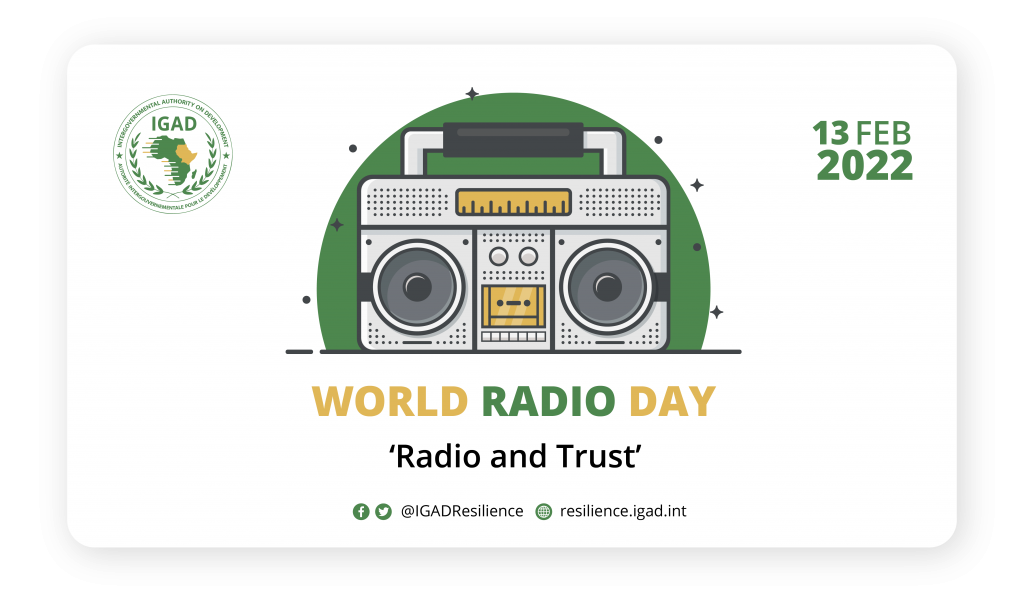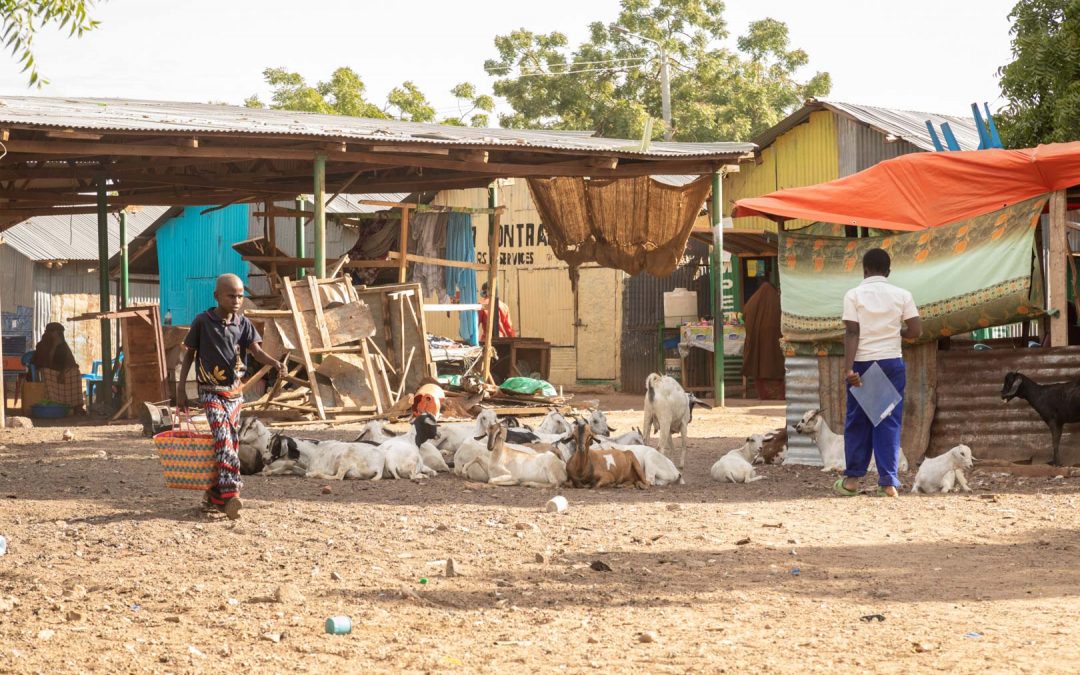How do you hold a face-to-face knowledge share fair with cross-border communities during a pandemic? We asked ourselves this question in 2020 when countries worldwide started to lockdown to prevent the further spread of the Covid-19 virus.
At the time, our team that coordinates the IGAD Drought Disaster Resilience and Sustainability Initiative (IDDRSI) had just started to plan a face-to-face event. The event aimed to promote knowledge exchange among community representatives, the private sector, non-governmental agencies, communities, and government about access to financial services and women empowerment in the Mandera Cluster.
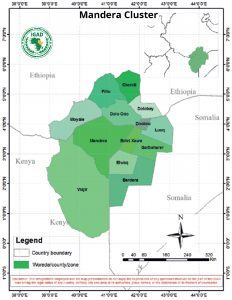
The Mandera Cluster is the cross-border area between Kenya, Ethiopia, and Somalia. The communities living in and around the region share historical, socio-political, and economic ties going back centuries and therefore have strong interactions, with the towns of Mandera (Kenya), Bulahawa and Dolow (Somalia), and Dolo Ado (Ethiopia) forming important corridors for trade in livestock and other commodities. However, the area has suffered neglect by respective governments due to remoteness, with conflicts, insecurity, and violence from extremists undermining peace and development.
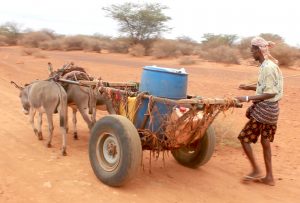 IGAD has been working with the three governments to invest in development programmes and reduce the negative impact of droughts in the cluster. Women are particularly affected by climate-related crises, so we got support from the Government of Sweden to create more awareness about the inclusion of women in all aspects of development. In 2020, the thematic focus was to enable women to access finances to invest and gain economic independence.
IGAD has been working with the three governments to invest in development programmes and reduce the negative impact of droughts in the cluster. Women are particularly affected by climate-related crises, so we got support from the Government of Sweden to create more awareness about the inclusion of women in all aspects of development. In 2020, the thematic focus was to enable women to access finances to invest and gain economic independence.
When the Covid-19 pandemic started affecting the region, face-to-face meetings were impossible. Many events moved online, and we considered this option too. But we realised that the targeted community members, especially those from more remote areas, would be excluded from such a format.
Radio was, without a doubt, the best option we had. Compared to a face-to-face event, it provided us with an opportunity to reach a wider audience.
IGAD sponsored Star Media Development Centre (SMDC) to air a radio magazine programme called DARYEEL on Star FM radio station. Star FM aired 12 episodes of 30 minutes each on 105.9 in Kenya and 97.0 in Somalia. Each programme addressed issues that affect women and girls in the Mandera Cluster. Guest speakers spoke about the impact of Covid-19, climate-related crises and survival tactics employed by men and women, and the effect of drought on livelihoods. Some guests talked about the challenges and opportunities for women to access financial services like banking and credit. Others explained how the private sector supported women’s financial needs and laws that helped women’s empowerment.
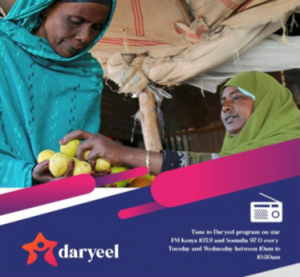 The programme aired in a catchment area with a population of about one million spread across the northern region of Kenya, Dollo, and Suftu of Ethiopia, and Gedo and Mogadishu of Somalia. The programme reached more than 20,000 people through social media, with an average reach of 1,000 people per episode.
The programme aired in a catchment area with a population of about one million spread across the northern region of Kenya, Dollo, and Suftu of Ethiopia, and Gedo and Mogadishu of Somalia. The programme reached more than 20,000 people through social media, with an average reach of 1,000 people per episode.
DARYEEL created an alternative platform for listeners to air their views and channel their grievances. They called in, sent text messages, and posted comments on the Star FM Facebook page. The experience also opened up an opportunity for the guest speakers. According to the programme producers, many speakers are willing to continue participating in other radio programmes to educate and give back to society.
Although the programme was well-received, the episodes were short. Some listeners never got a chance to participate in the discussions. Due to poor communication networks, some callers would be cut short, or their contributions would be inaudible. Also, the programme moderators had a tough time managing callers who went out of topic. These challenges were lessons that IGAD and the programme producers can now improve future radio programmes.
This year’s World Radio Day theme is ‘Radio and Trust’. Star FM used radio to continue building bridges, and in the process, reduce inequality among men and women in Mandera Cluster. They created an accessible and open space, where the guest speakers and listeners could impart their knowledge and experiences and figure out how to work together to build stronger, resilient communities.
Amid a pandemic, when people had to retreat into their individual spaces, radio proved once again that it is a resilient, timeless, and efficient medium for connecting the furthest people. For that service, we at IGAD celebrate World Radio Day and the people that work to provide radio services.
